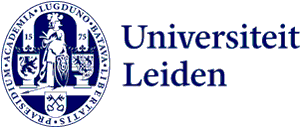
What if the Netherlands became vegan?
Imagine no one in the Netherlands would eat animal products anymore, what would happen? And would it contribute to more climate justice? That is the theoretical exercise that environmental scientist Jan Willem Erisman and landscape architect Berno Strootman are taking up. 'Sometimes you have to think in extreme terms to get new insights.'
'How can you design a city, the countryside and our society in a way that it is fair to everyone?' That is the question with which Erisman and Strootman entered the Open Call of architecture foundation Van Eesteren-Fluck & Van Lohuizen: Designing a climate justice world. 'And by everyone, I don't just mean humans, but also animals and nature,' Erisman says. They submitted a proposal for 'Project Netherlands Veganland'. Within this project, they want to see what would happen if all of the Netherlands had a vegan diet. With 50,000 euros from the EFL Foundation, they will work out the exercise in the coming year.
Climate justice for everyone
'We must first consider carefully what climate justice means exactly,' Erisman says. 'We have universal human rights: the right to life, a fair trial, freedom of speech, a decent standard of living, and so on. If we translate that to animals, landscapes and nature, what does that mean? Animals also suffer from the climate change we cause. Shouldn't we give them rights? And how do we design the landscape in a way that it is also equitable for nature? With this project, we want to extend climate justice beyond humans. To do so, we are collaborating with experts in the field of nature rights.'
Food production for animals
Suppose all of the Netherlands eats vegan, will that help make a more climate-just society? 'For that, we need to look at who will benefit and/or lose and who do not. The animals we now breed will no longer be there, so their situation already improves.' And if those animals are no longer there, we don't need to produce food for them either. 'In the Netherlands, we use 80% of our fertile agricultural land to produce animal food. In Veganland, you can produce a lot more plant-based food for humans.'
And this does not only have consequences in the Netherlands. 'Tropical rainforests are currently being cut down in order to make more room for the global food supply of animals. If we don't have animals anymore, we won't have to. That is fairer for both the rainforest and the people who have always lived there.'
Giving back to nature
If land is left over by not keeping animals in vegan Netherlands, we could allocate it differently. 'Such as for nature or for forests that capture extra carbon,' Erisman said. 'Then we have to look carefully which landscapes you want to preserve and why they are valuable. And do we only want to produce food for the Netherlands or also export it? We have to look at how best to organise that so we can continue to feed people well.'
And not only that, Erisman argues enthusiastically. 'We also need to consider the impact on rural communities, the rural-urban connection and the impact on the city. These are all ideas we will be working on in the coming period.'
Extreme thinking helps
With this theoretical exercise, Erisman hopes to gain new insights that we can apply in the Netherlands. 'It is certainly not a wish to make everyone vegan. Nor do we have the idea that that would solve all our problems. But sometimes you have to think in extreme scenarios to gain other solutions and insights. What those insights are, we don't know yet.'
In a year's time, the project should be completed. 'As a final result, we want to make an exhibition where you can experience what our design for a climate-just world means for people, animals and landscape. Next to that, we are designing a set of maps that we can use as a starting point and inspiration to make the Netherlands more climate-just.'
